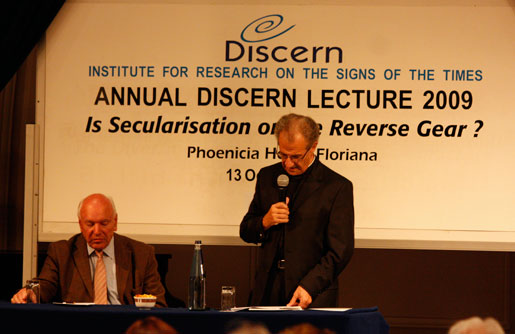 Is Secularisation on the Reverse Gear?
Is Secularisation on the Reverse Gear?
Amongst post-modern societies’ members, the element which prevails is the knowledge power rather than the muscle power. Dominant features within these societies are capitalism, post-industrialization, urbanization, rationalization, science, technology and secularization. Collectively these characteristics pose amplified challenges to all societies’ relationships and institutions, including religion. David Martin’s straightforward definition to secularization is “whatever goes wrong with religion, including for example, the introduction of laws permitting abortion and euthanasia”.
That the shift from religion to secularization is a linear one is a common incorrect assumption, according to David Martin. He explained that this supposition is contradicted by a number of empirical correlations and observations. When analysing secularization, David Martin has taken a wider view than most sociologists by looking at the changing role of religion in a range of societies. In his lecture he illustrated contrasting patterns of religious practices in various advanced industrial societies. Also, he revealed a marked differences within a number of single societies. The particular location, history, culture, ethnicity, external influences, social classes and political systems of an area, contribute in different ways and to varying degrees, to its level of secularization. From his studies, David Martin maintained that some niches in society are capable of protecting their own identity more than others. He argued that in modern societies the role of religion is determined by particular factors, such as: the level of religious pluralism and the dominant religion; the political system and the correlation between the church and the state; and the degree to which religion aids in the provision of nationalism, regionalism and/or ethnic identity. David Martin concluded that the various processes grouped together under the secularization’s heading, are not necessarily linked, since along the years this term has assumed a broad meaning.





